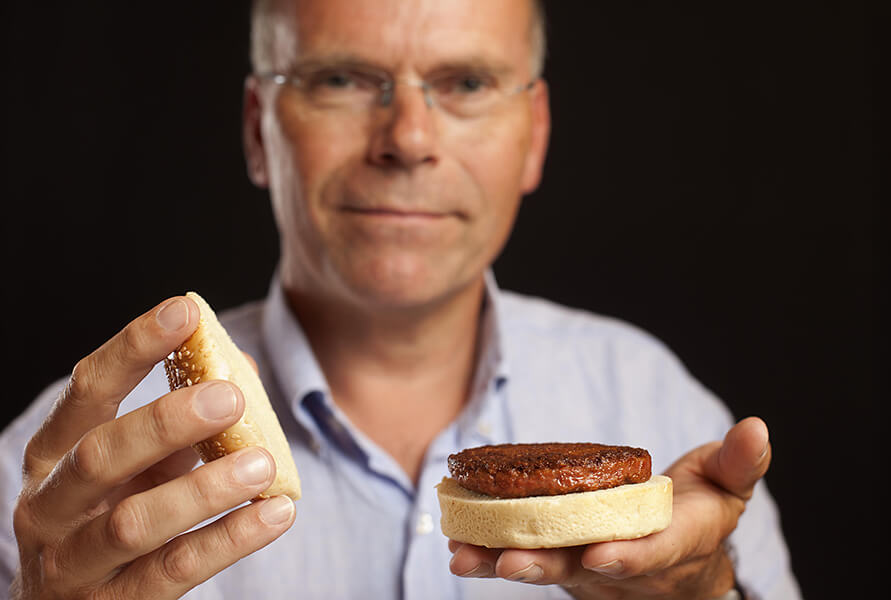Climate Change Will Have (Some) Positive Effects

EDITORIAL USE ONLY.
A burger made from Cultured Beef, which has been developed by Professor Mark Post of Maastricht University in the Netherlands.
PRESS ASSOCIATION Photo. Issue date: Monday August 5, 2013.
Cultured Beef could help solve the coming food crisis and combat climate change. Commercial production of Cultured Beef could begin within ten to 20 years.
Photo credit should read: David Parry/PA
Re: my recent post on Popular Mechanics’ predictions for our future, my friend who had originally sent me the article writes:
I can’t disagree with your balancing the good with dystopian probabilities. Regarding global warming, your predictions are likely spot-on. But I wonder whether there may be some silver linings. For example, might we find that Greenland has arable land that can feed the world? Will Russia gain the warm-water ports for which they have murdered millions in wars? Will Antarctica become the world’s largest planned community/state? Will the Falkland islands become a resort land that replaces the tropical islands of the Caribbean?
This is obviously tongue-in-cheek, but there is a serious point to be made, i.e., that there will, in fact, be some beneficiaries of global warming. In fact, there are people who are either a) so badly misinformed or b) such egregious liars that they claim the pros more than balance out the cons. (They don’t.)
When I read my friend’s reference to “silver linings,” I thought he was going to go in the direction of technologies that both mitigate climate change and provide other forms of value. This of course, is highly probable; in fact, it’s hard to think of innovations in history that didn’t offer benefits in fields totally unrelated to the original focus of their inventors.
Obviously, renewable energy is both low-carbon and benign to our respiratory systems. Keeping fossil fuels in the ground means both low-carbon energy and fewer oil spills.
But perhaps the technological advancement that will prove to be the most important in all cleantech is synthetic meat. The eco-footprint associated with growing cows and pigs is enormous, and the progress being made in replacing this with a substitute that is looks, smells, and tastes like the real thing is nothing short of incredible.

Craig,
Remind me again how cattle are worse than buffalo for the environment?
Remind me again how cattle farming with it’s emphasis on legume mixing and soil conservation is worse than crop farming ?
That’s one of the problems besetting the environmentalist movement as basically urban people lacking any real knowledge or rural life, armed with ideological agenda’s attack rural industries.
Craig,
Meanwhile, NASA says the globe has 14% more green vegetation than 33 years ago, largely because of extra carbon dioxide in the air, which makes plants grow faster and use less water doing so, in all ecosystems from the arctic to the tropics.
Go figure !
As I say, there is a fringe group that believes the we need more CO2 in the atmosphere, and that global warming is a good thing overall. From this post: http://www.2greenenergy.com/2012/02/29/religion-and-energy-policy/:
Illinois Congressman John Shimkus, who aspires to be chairman of the super-powerful House Committee on Energy and Commerce, quoted the bible (the books of Genesis and Matthew) as reason not to act on climate change, reading: “And He will send his angels with a loud trumpet call and they will gather his elect from the four winds from one end of the heavens to the other. The Earth will end only when God declares it is time for it to be over. Man will not destroy this Earth.” Shimkus continued, asserting, “There is a theological debate that this is in fact a carbon-starved planet, not that we have too much carbon.”
I hesitate to challenge anyone’s faith. Yet I don’t hesitate for a second in recommending against electing lawmakers whose decision-making process so clearly and aggressively flouts critically relevant scientific discoveries. Our civilization simply must come up with a better way in dealing with the lethally important challenges we face.